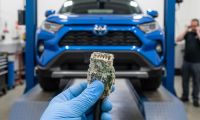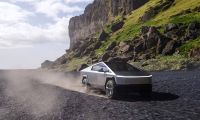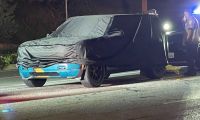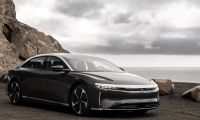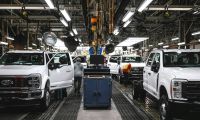
Nikkei Asia reports that Toyota Motor is by far the leading holder of solid-state battery patents, a Nikkei study shows, demonstrating how Japanese companies have dominated the race to develop the next-generation power source for electric vehicles.
In fact, Japanese companies dominate top 10 list of solid-state battery patents, but South Korean rivals are gaining ground.
According to Nikkei Asia, Toyota is the leader with 1,331 known patents while Panasonic Holdings is a distant second with 445 patents. Idemitsu Kosan holds 272 patents, meaning Japanese companies held the top three spots.
Solid electrolyte batteries offer high energy density. But they are expensive and the competition is growing rapidly. Can Solid State keep up?
Toyota, for example, is experimenting with a semi-solid electrolyte that is easier to handle. However, here again safety must be guaranteed. Toyota announces that it will first use such a de facto semi-solid state cell as a backup battery in hybrid cars.
In fact, According to Nikkei Asia, Toyota is due to roll out a hybrid vehicle equipped with a solid-state battery during the first half of this decade. Some people think it will not be an electric vehicle, but rather a hybrid Toyota Prius. Nissan Motor and Honda Motor plan to release EVs with solid-state batteries in the latter half of the 2020s. Non-Japanese carmakers like Volkswagen have their own plans to launch models with solid-state batteries as well.
As you can see, the Japanese carmakers like Toyota are taking a multi-pronged approach to the future: with hybrid models and purely electric cars. And with different battery technologies.
For many years, Toyota has stuck to its hybrid models and left purely electric models aside. That is about to change: by 2030, the manufacturer wants to sell a total of eight million electrified cars worldwide – one million of them are to be powered exclusively by a battery. This increases the demand: The Japanese expect to install a total of around 200 gigawatt hours of battery capacity in their cars by this time. Diversity is also an advantage when it comes to battery technology.
Armen Hareyan is the founder and the Editor in Chief of Torque News. He founded TorqueNews.com in 2010, which since then has been publishing expert news and analysis about the automotive industry. He can be reached at Torque News Twitter, Facebok, Linkedin and Youtube.
Set Torque News as Preferred Source on Google

